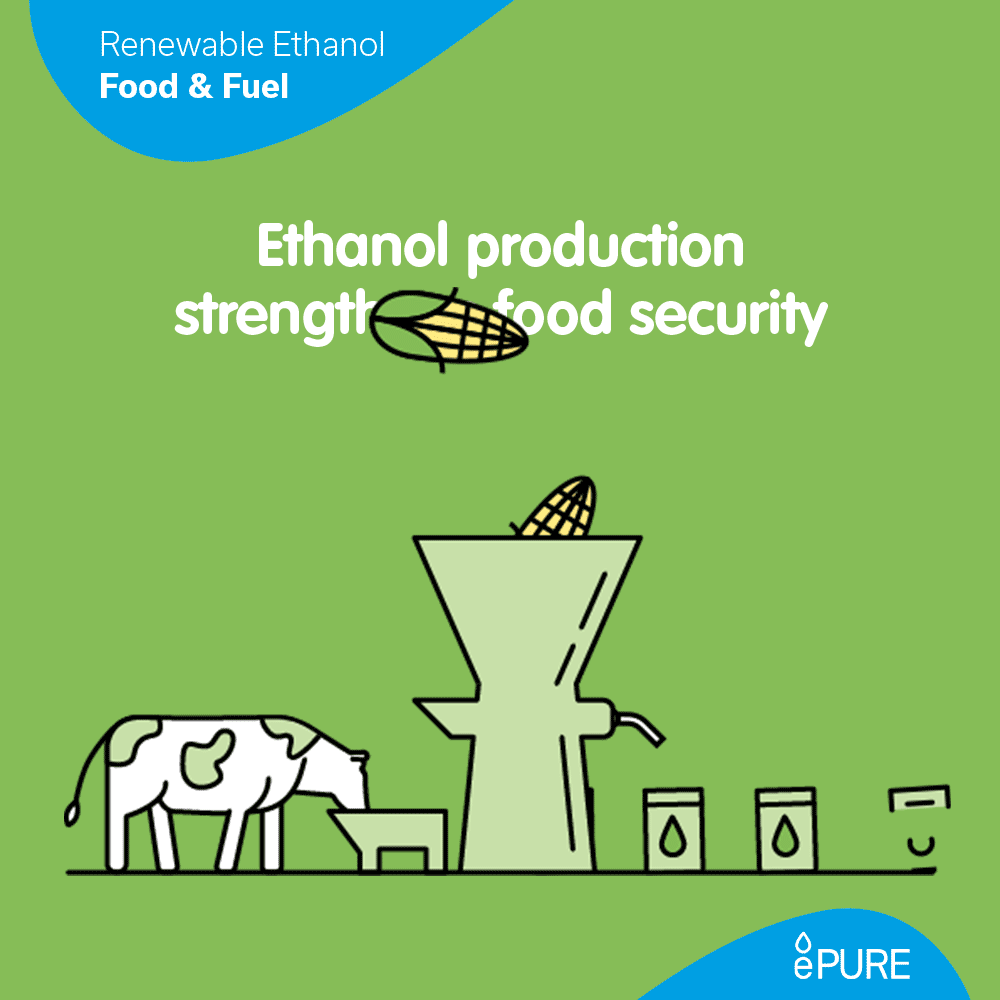
Is there a ‘food vs fuel’ conflict?
Not with ethanol. In fact, ethanol production makes ‘food AND fuel’.
Does ethanol production compete with food production?
No. Fuel ethanol production actually contributes to food supply [1] [2]. Every tonne of grain used by the European ethanol industry produces as much high-protein animal feed as it does clean-burning, climate-friendly fuel. In 2023, ePURE members’ biorefineries produced 6.5 million tonnes of high-protein animal feed – more feed than fuel.
Ethanol production actually contributes to EU food security.
That makes it a home-grown solution. Ethanol production in Europe helps offset the heavy EU reliance on imported protein for animal feed use. In 2020 the EU had to import more than 22% of its protein demand, mostly in the form of soybean and oilseed meal. European renewable ethanol production alone supplied around 1.7% of the protein feed of EU origin. Therefore, without European biofuels, the amount of soybean meal that would have to be imported from third countries would increase significantly.
Does ethanol production affect food prices?
No. Several studies have found that production of ethanol has almost no impact on food prices. Even as EU biofuels production has increased, global food prices have gone down. Since 2008, global biofuels production increased by 93% and EU production increased by 102%. In the meantime, global food prices dropped by 16%[3]. The European Commission confirmed that EU biofuels policy has not led to negative impacts on food prices, nor will it by 2020 [4].
 In fact, over 60% of food price increases are caused by crude oil spikes. As most crude oil is imported in the EU, this contributes to a trade deficit and damages both farmers and consumers who lose from such spikes. By displacing fossil fuels, biofuels can mitigate the effect of crude oil on food prices [5].
In fact, over 60% of food price increases are caused by crude oil spikes. As most crude oil is imported in the EU, this contributes to a trade deficit and damages both farmers and consumers who lose from such spikes. By displacing fossil fuels, biofuels can mitigate the effect of crude oil on food prices [5].
[1] UN Food and Agriculture Organisation: Director General Jose Graziano da Silva speaking at the Global Forum for Food and Agriculture (2015)
[2] International Food Policy Research Institute: Reconciling Food Security and Bioenergy: Priorities for Action (2016)
[3] See BP statistical review and FAO Food price Index
[4] Renewable Energy Progress Report, European Commission (2019)
[5] Long-Term Drivers of Food Prices, World Bank (2013)
